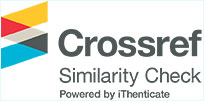Assessing the impacts of global warming on meteorological hazards and risks in Japan: Philosophy and achievements of the SOUSEI program
Tetsuya Takemi, Yasuko Okada, Rui Ito, Hirohiko Ishikawa, Eiichi Nakakita
Received 2016/08/29, Accepted 2016/11/03, Published 2016/12/10
Tetsuya Takemi1), Yasuko Okada2), Rui Ito3), Hirohiko Ishikawa1), Eiichi Nakakita1)
1) Disaster Prevention Research Institute, Kyoto University
2) Japan Agency for Marine-Earth Science and Technology
3) National Research Institute for Earth Science and Disaster Resilience
We review the philosophy and achievements of the research activity on assessing the impacts of global warming on meteorological hazards and risks in Japan under Program for Risk Information on Climate Change (SOUSEI). The concept of this research project consists of assessing worst-class meteorological hazards and evaluating probabilistic information on the occurrence of extreme weather phenomena. Worst-scenario analyses for historical extreme typhoons and probabilistic analyses on Baiu, warm-season rainfalls, and strong winds with the use of high-performance climate model outputs are described. Collaboration among the fields in meteorology, hydrology, coastal engineering, and forest science plays a key role in advancing the impact assessment of meteorological hazards and risks. Based on the present research activity, possible future directions are given.
Copyright (c) 2016 Japan Society of Hydrology and Water Resources



